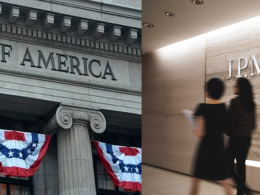Citigroup has announced it will no longer require a diverse slate of candidates for job interviews, as corporate America adjusts to shifting policies under President Donald Trump. In a memo to employees on Thursday, CEO Jane Fraser stated that the bank would no longer set “aspirational representation goals” except where mandated by local law. The move is part of a broader restructuring, which includes renaming its “Diversity, Equity and Inclusion and Talent Management” team to “Talent Management and Engagement.”
The decision comes as businesses across Wall Street and the professional services sector reassess their diversity, equity, and inclusion (DEI) commitments. Earlier this month, Goldman Sachs rescinded a policy introduced in 2020 that required companies going public to have at least two diverse board members. Last week, JPMorgan Chase warned of potential backlash against its DEI programmes, signalling growing pressure on financial institutions to revise their policies.
In a similar shift, KPMG US has removed years of transparency reports on its diversity efforts from its website, following the firm’s decision to end its flagship DEI initiative, “Accelerate 2025.” The programme, launched in 2020, aimed to increase the representation of women and minorities among partners and managing directors to 50% by 2025.
In an internal memo, CEO Paul Knopp cited a changing legal and regulatory environment as the reason for the rollback, stating that the firm must comply with new federal guidelines. Knopp noted that the company remains committed to fostering an inclusive workplace but will re-evaluate its diversity initiatives to ensure compliance with recent executive orders and court rulings.
Despite removing DEI-focused reports from its website, KPMG’s most recent data (as of September 2023) indicated that 45.3% of partners and managing directors came from under-represented groups, an increase from 39.3% in 2020. A data appendix showing workforce demographics remains available online.
The rollback of corporate diversity initiatives aligns with President Trump’s efforts to dismantle DEI programmes across both the public and private sectors. On his first day in office, Trump signed an executive order requiring federal contractors to ensure that their DEI policies do not violate anti-discrimination laws. The administration has also threatened investigations into corporate DEI programmes, prompting firms with significant government contracts to reconsider their approach.
A government database shows that KPMG US and its affiliates generate over $400 million annually from contracts with the U.S. federal government, primarily through the Department of Defence. The financial incentive to remain compliant with federal directives has likely played a role in KPMG’s decision to withdraw its DEI transparency reports and refocus its policies.
Other consulting giants, including Deloitte and Accenture, have followed suit by quietly scaling back their DEI commitments. Deloitte has removed DEI-related pages from its website, while PwC has limited access to its historic diversity reports.
As businesses navigate a rapidly evolving regulatory and political landscape, many are moving away from formal DEI commitments while maintaining a broad focus on inclusivity and diverse hiring practices.
Citigroup has reiterated that while it is eliminating specific diversity targets, it will continue to encourage hiring managers to seek a range of perspectives in recruitment decisions. Similarly, KPMG has stated that it remains committed to broadening its talent pipeline and fostering an inclusive workplace, even as it restructures its diversity policies.





















